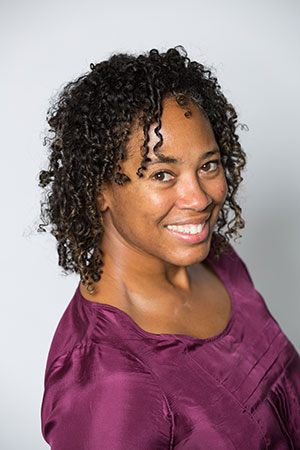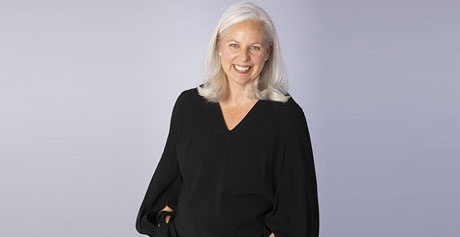She Teaches Torts, Products Liability, Family Law, Race & Law, & Constitutional Law. Meet University of Miami School of Law Professor, Zanita E. Fenton
 Q: After high school, where did you feel your career path would take you?
Q: After high school, where did you feel your career path would take you?
ZF: After high school, I envisioned a variety of possibilities. I aspired to be a lawyer, but it was not my only ambition. Since my father was in the U.S. Air Force when I was a child, I imagined working internationally or foreign service. Of course, my childhood dreams of dancing on stage in a Broadway production or becoming part of a famous orchestra flutist were also still very much alive, if only in my mind. I am glad I kept all my dreams alive, even the unrealistic ones. Having more than one dream enabled me to believe that anything was possible and brought my studies to life as I studied and imagined where knowledge could lead me.
Q: When did you realize you would rather teach instead of practice at a law firm?
ZF: This was not an either/or proposition to me. From my perspective, the elements for being a good law teacher and for being a good lawyer are the same. You need a heathy curiosity that questions everything and the follow-up verification for important matters. With your developed knowledge and expertise, you then are able to appropriately impart them in a manner designed to reach your specific audience. So, for example, presenting a case and making statements to a jury are forms of teaching.
In law school, I was fortunate to be mentored by Professor Martha Minow (now, also former Dean of the Harvard Law School); she suggested I consider teaching. Quite honestly, I was surprised at her suggestion, but she must have seen something that I didn’t realize about myself. Her suggestion planted the idea that later served to encourage my initial application and engagement in the AALS law-teaching interview process.
Q: How many years does it take to become a Professor? Can you share the process you went through?
ZF: The standard pathway includes a four-year undergraduate degree followed by three years to acquire a law degree, but the pathway into the profession is a variable as the people choosing to teach. Many people enter the work-force in a wide variety of fields before law school and after (and, of course sometimes, during the time you compete your studies). In addition, there are a several post-graduate fellowship programs designed to assist an individual enter the teaching profession. At the time I entered law teaching, there were only a few fellowship programs, but these quickly grew in numbers, but most of them were available after I had already begun law-teaching.
After being an associate at Cleary Gottlieb Steen and Hamilton and while I was clerking for the Honorable Edward R. Korman in the Eastern District of New York, I applied for teaching positions through the AALS Faculty recruitment conference and received several screening interviews. Because I had not considered Teaching as a realistic objective this early in my career, I treated my interviews as a “dry-run,” believing I would be taken more seriously in about five years when I had more practice experience. As with most people who first understand a job from the outside, I did not comprehend what qualities and skills were desirable for law teaching or that I possessed them.
After the screening interviews, I received a handful of callback interviews at prospective institutions. These interviews were more intense with several group interviews and usually a lunch-time job/scholarly presentation in front of the full faculty, during which I generally was peppered with questions regarding my thesis. These questions were formed from every relevant subject area and designed to ascertain how thorough I was in posing my thesis; to see how quick I was in synthesizing different points, and to gauge my classroom presence. These full-day interviews usually ended with some “wining and dining” as the school’s recruitment efforts in advance of their offer.
I took my first law-teaching job at Wayne State University Law School in Detroit, Michigan.
Q: Which courses of law do you teach?
ZF: I teach courses in Torts, Products Liability, Family Law, Race and Law, and Constitutional law. I also have taught various seminars that focus on Reproductive Rights, Defamation, Critical Race Feminism, and Racial Justice.
Q: What do you enjoy most about your career as a Law Professor?
ZF: In engaging with students, I especially appreciate what I call, “light bulb” moments. These are the times when I am able to reach a student on a point that was previously confusing to her or him. I find it immensely satisfying to help a student move forward with a renewed foundation of understanding and the confidence that comes with it.
I also appreciate my ability to be an advocate as a Professor. This takes many forms: sometimes, it’s a simple as sharing my personal perspective with students; sometimes it is writing or signing on to an amicus brief or petition; sometimes its standing with others or alone for what I believe; sometimes it is representing the occasional client; sometimes it is the choices I make in what I write and publish in the hopes my writing will influence or how someone thinks about real problems.
Q: Can you tell our audience one of your most memorable moments in your career?
ZF: The most memorable moments have been the occasions when I received kindness and mentoring to guide and reassure me along my pathway. I am forever grateful for the mentorship of Professor Martha Minow (former Dean of the Harvard Law School) and the generous time given to me by the honorable Edward R. Korman (District Judge for the Eastern District of New York). I am also grateful for mentorship that occurred in more limited parcels of time, often in passing conversations, too numerous to identify. One notable occasion included advice from Professor Deborah Rhode (Stanford Law School) who took time out at a conference to give me a very specific critique of my presentation along with encouragement to accomplish the next. Another notable occasion was a walking two-minute, hallway conversation with the late Professor Derek Bell (Harvard Law School). At the time, he was being followed by a large group of people seeking his attention, but he gave me direct focus, ensuring I received his valuable, positive encouragement.
Also memorable for me are some of the occasions I had the opportunity to mentored someone new to law teaching, assisting them with their scholarly ideas or techniques for teaching to counteract certain gender or race-based assumptions. These occasions are too numerous to account but deserve mention if only because I attribute them directly to the mentoring I received. When you receive something so valuable as mentorship, it is not possible to repay; the very best one can do is pay it forward in large and little ways and hope that everyone else does too.
Q: Which woman inspires you and why?
ZF: Ida B. Wells instantly comes to mind as a great advocate in our history who seemed unwaveringly to stand up for her beliefs, even in the face of violence, terror tactics, and the incineration of her printing press. I routinely cite her as one of my “sheroes.” If only she were still here so that I could meet her, be inspired by her, and join in her fight for justice.
Truth be told, I am constantly inspired by women in every-day situations. Women accomplish so much while confronting obstacles of every imaginable kind. I admire women who manage to graduate school in a male-dominated major and field. I admire strippers who get paid enough to hold it together and raise their kids. I admire women who manage to raise their kids and take care of their ailing parents in the same household. I admire female entrepreneurs who find success by never giving up. I admire any woman who keeps going in the face of challenge, stereotype and the micro-discriminations that occur every day.
Q: What's your advice for women in male-dominated fields?
ZF: Find your confidence; find your voice. Remember how you got to where you are – that you are smart and talented. Find ways to assert yourself.
I find that many of my female students are quiet or reticent, not having the confidence to volunteer to speak in class. However, when called upon and invited to speak, these same students usually have well-considered answers.
Young women should remember that their contributions are valuable and important. They should be willing to assert themselves and not be silenced. Quietude and polite deference are learned behaviors, meaning you can learn to do otherwise. There are a variety of techniques one can develop to be more assertive. It is important to find what best works or you. Even more important its assuring your own success, are the moments of self-affirmation that develops personal confidence.
In the face of this expectation, generally imposed on women, I developed a habit that when someone chooses to talk over me or otherwise disregard my participation, I graduate my voice as the other person gets louder; at some point he realizes his rudeness. I’m also known for saying, “I’m speaking, please let me finish before you interrupt.” Alternatively, if I encounter rudeness from my students in the classroom, I lower my voice, requiring their deliberate attention to hear. It is unfortunate that anyone has to develop strategies to avoid being silenced, but we can each develop the ones to suit our own personalities and to ensure self.
Q: What are some of the challenges you feel women face today?
ZF: Women today, by and large, have been raised to believe they can do it all and have it all, but also that they must be all. These expectations are unrealistic and overwhelming. In addition, socially-generated gender stereotype continues to create real obstacles, limitations, and burdens, personally and professionally.
In today’s society, people of both genders work often with two-parent families unable to make end-meet without both incomes. Yet the burdens of child-care and other types of family-care needs continue to be placed primarily on women. These dual-burdens are most obviously placed on single-parents, comprised primarily of mothers. This should be conceptually strange since everyone has family. While we strive to implement universal healthcare with the Affordable Care Act, I believe it equally important that we strive for universal, safe, and affordable childcare for the sake of our nation’s progress.
Even while expectations and some opportunities have increased for women, job and pay equity are still lacking. Indeed, the likelihood of women engaging in math and science related professions is not where it ought to be, nor have the upper echelons of business and professional fields seen increases in line with statistical probabilities. However, some unfortunate consequences emanating from the multiple-burdens facing modern women are numbers approaching equality in areas like criminality, rates of incarceration and an increased representation among violent criminals.
What is most emblematic for the realities facing women in the modern work landscape is the most lucrative fields continue to be flesh-objectifying, rather than intellect-exhibiting.
Three Things About Zanita Fenton
1. Favorite city and why?
I have travelled extensively from growing up as an Air Force “brat” (my father served for 20 years) and after. There are too many great cities to pick just one. Like people they are each unique and special.
2. What app can’t you live without?
Notes. Ways. Calendar. (secret addiction: Angry Birds … still)
3. If you could go back in time, what year would you travel to and why?
Why would anyone ever want to move backwards?


